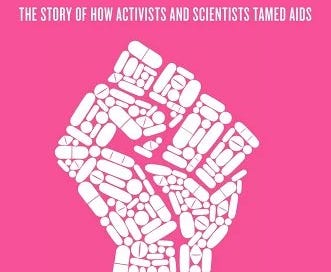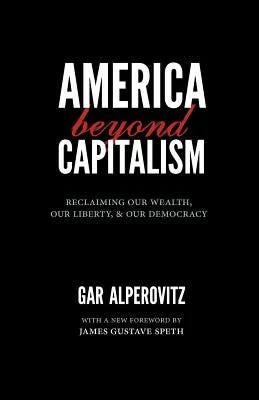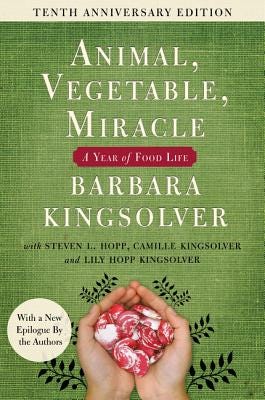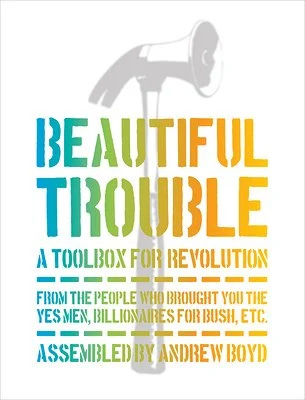Book Rex: How to start taking action
Good reads if you're committed to making things better but don't know where to start.
I talk a lot about the difference between hope and optimism on Better Strangers, and a big part of embracing hope is committing to making things change for the better yourself. This is opposed to the optimistic stance, which puts its faith in something outside the self.
There’s a really lovely Mr. Rogers quote that goes around whenever anything bad happens:
“When I was a boy and I would see scary things in the news, my mother would say to me, ‘Look for the helpers. You will always find people who are helping.’ To this day, especially in times of ‘disaster,’ I remember my mother’s words, and I am always comforted by realizing that there are still so many helpers — so many caring people in this world.”
That’s really nice! But it also is something he was saying to kids, who are powerless and who need comforting by adults. You, the adult, have the responsibility to be one of those helpers he was talking about. If you’re optimistic, you are looking for the helpers. If you are hopeful, you are the helper yourself.
If you want to make the move towards taking more action and becoming one of those helpers, here are some books on slightly different themes that will help move you in that direction.
America Beyond Capitalism by Gar Alperovitz
I’ve mentioned Alperovitz quite a bit on here in the past — he is a great place to start just because of the sheer number of ideas he has for fixing things in our communities right now. America Beyond Capitalism and his shorter book What Then Must We Do? are manuals for starting to build a sustainable, equitable economy underneath the ruins of global capitalism. Alperovitz has some street cred here: he was part of building out worker coop movements in the Midwest in the 70s and 80s when factories were laying off everyone in the Rust Belt and outsourcing their work abroad.
One inspiring thing about choosing hope is that once you engage in this work, you’ll realize how many people are already doing it. Alperovitz will give you about 200 places to start looking.
Animal, Vegetable, Miracle by Barbara Kingsolver
One of the best ways to immediately improve your ecological footprint (not to mention better connect to your local environment) is to examine where your food comes from.
Acclaimed author Barbara Kingsolver spent a year with her family attempting to only eat food that was either from their neighborhood or which they themselves had grown. The idea was that they no longer wanted to take part in the industrial food system, with its environmental abuses and its cruelty towards animals.
The resulting book is an interesting examination of the struggles of being self-sufficient, while also being a treasure trove of ideas for how you can start to shift your food habits towards something more sustainable.
Lisa Jervis’ Cook Food is a slimmer guide to making wiser food choices, it is also absolutely worth checking out.
Beautiful Trouble
If you’re interested in activism, specifically of the protest-y, direct action sort, I highly recommend Beautiful Trouble. It calls itself a “toolbox for revolution” and basically gives tips, tactics, theories, and stories about how to force change in a world that doesn’t want to. While originally a book, it has since been adapted to a website that basically contains everything in the book and more.
How to Survive a Plague by David France
If you want a story of how activists turned a truly hopeless situation into real and lasting change, you’ll want to read David France’s account of the HIV/AIDS epidemic, How to Survive a Plague. While part of it is France’s personal experience, the main topic of the story is the work of ACT UP, the radical, direct action network of activists that forced an uncaring government to actually do something to help save the stigmatized LGBTQ+ community. Without their work, we likely would never have reached a point where someone could say they are “living with HIV.”
It is also not an exaggeration to suggest that their work led to much of the progress we now enjoy (even though it is, once again, predictably, under attack). This is required reading for anyone who wants to engage in activism that works both against and with the government to achieve its ends.
If you do not have time for the book, it was also adapted into a documentary that was nominated for an Academy Award.
Friends of PM Press subscription
I also highly recommend becoming a Friend of PM Press. PM Press is a radical book publisher, and a lot of the books I’ve read that gave me hope came from the year or so I paid them $30 a month and in exchange, got a box of books on my doorstep (not to mention 50% off in their shop). I unfortunately had to cancel when money got tighter, but I will be re-upping my subscription once I work through the piles of books they already sent me. If you don’t know where to start, let someone else choose for you! You can just get a bundle of random books — including comics, novels, histories, and insurgency guides — from the Publisher and read what you want and give away the rest.
Also, for the record, I am taking precisely zero pay to write this. Support your radical presses if you want to keep getting new ideas instead of recycled, failed, old ones.







